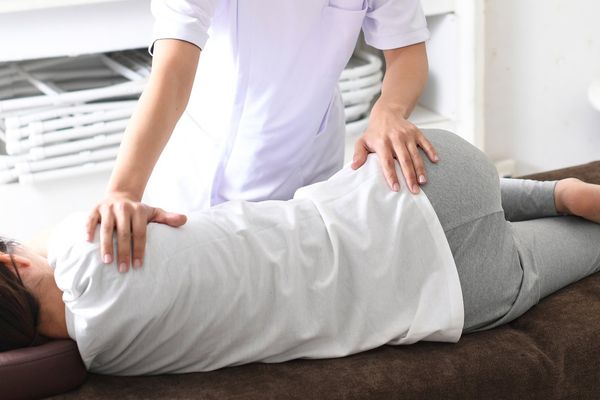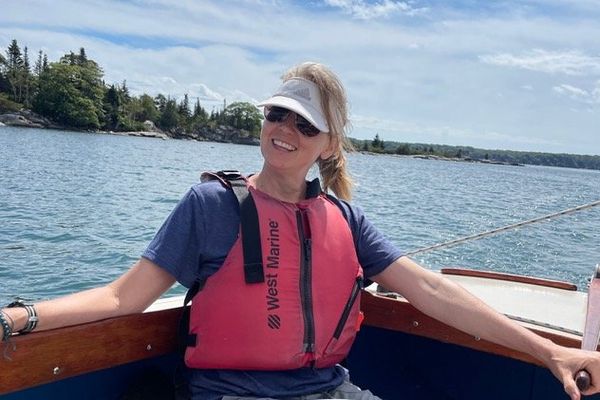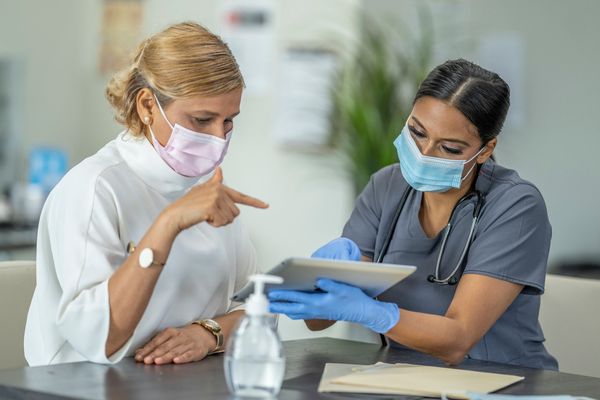By Sherrie Palm, for Women's Health Foundation
Seldom a day goes by that I don't ponder the various paths of pelvic organ prolapse (POP) and constipation. I think about how POP impacts women who know they have it but aren't ready to jump the fence to surgical repair. I think about how it impacts women who are going to have surgery but have to figure out how to deal with it until the day their surgery occurs. I think about women post-surgery like me who still dance with constipation issues. I think about women who've had chronic constipation for years and have no idea why.
Constipation is both a symptom and a cause of POP. Constipation is an insidious indicator of POP issues, both past and present. To say all we want to do is poop normally is an understatement. On the days when things "come out all right" I feel I should put a gold star on the calendar. You know what I mean—talk about life's little pleasures.
I assumed for some time that my lingering constipation issues post-surgery were related to the irritable bowel syndrome I've danced with for more years than I care to say. But in the time that has passed since my POP was addressed surgically and I shifted into POP advocate mode, I have listened to more and more women post-POP surgery who mirror my constipation issues.
I feel the time has arrived to address this topic a bit more in depth. First, here's a recognition factor: It is extremely difficult to contract your pubococcygeus (PC) muscle when your gut is full of fecal matter. It is also extremely difficult to contract abdominals for the same reason. I'm a bit of an exercise junkie and a huge promoter of continuing Kegels post-surgery for maintenance.
Soooo, what to do? Since many women will have scar tissue or adhesions post-POP surgery, pay attention to any restrictions or pain you feel in your vaginal/rectal/perineal area. Pay attention whether or not it feels uncomfortable when you are sitting. Pay attention to how your bowel movements have changed from what they were prior to surgery to where they are now. Pay attention to the discomfort factor with intercourse. (Not all women have constipation post rectocele surgery; if you are not having problems, you are good to go!)
There are a couple of paths to explore beyond traditional fiber/push fluids/exercise; please approach these carefully and slowly. These are not for women fresh out of rectocele surgery; please wait at least three months post POP surgery and check with your physician for full release before proceeding with any of the suggestions here. Common sense is vital.
Step one is get your colon/intestines as balanced as possible. We all have good bacteria, bad bacteria, and yeast in our digestive tracts. When these organisms are not in balance, constipation can occur. Probiotics and prebiotics help keep the flora inside of our gastrointestinal tract balanced. This can assist our digestive system with its job of effectively digesting food; the end result can be a decrease in constipation.
Probiotics can help reestablish balance in the intestines; prebiotics can assist with colon balance. Either of these supplements can be purchased from health food or supplement vendors.
Step two is locating a myofascial release (MFR) therapist in your area. MFR therapy is a very effective hands-on treatment that involves applying gentle sustained pressure to the myofascial connective tissue restrictions to eliminate pain and restore normal tissue contraction.
Fascial restrictions and scar tissue post-surgery often impact normal bodily function. Scar tissue in vaginal, perineal or pelvic floor areas can impact normal daily function. Finding techniques that release restrictions can get us get one step closer to bodily balance.
I can't emphasize enough the importance of getting cleared by your physician before utilizing either of these procedures. You need to be fully healed post-surgery before you experiment with new treatments.
It is also vital to recognize that we will never have the body we had at 25. Our expectations need to be realistic. I don't feel the need to have a 25-year-old body anymore—I simply want to be the healthiest person I can be at any age.
Sherrie Palm is the founder, CEO and executive director of the Association for Pelvic Organ Prolapse Support, a nonprofit foundation for pelvic organ prolapse support. She is also author of Pelvic Organ Prolapse: The Silent Epidemic, and a key opinion leader on pelvic organ prolapse. As a women's pelvic floor health advocate, she devotes her time to establishing recognition of pelvic organ prolapse and providing support pathways for women in various stages of POP. For relaxation Sherrie enjoys spending time in the woods and meadows of northern Wisconsin, walking with her dogs and taking digital photos of nature. For more info about APOPS or Sherrie Palm, visit Pelvic Organ Support.







